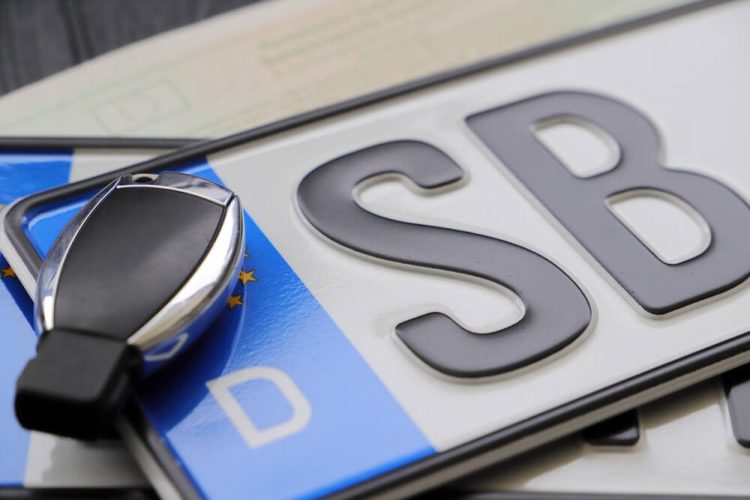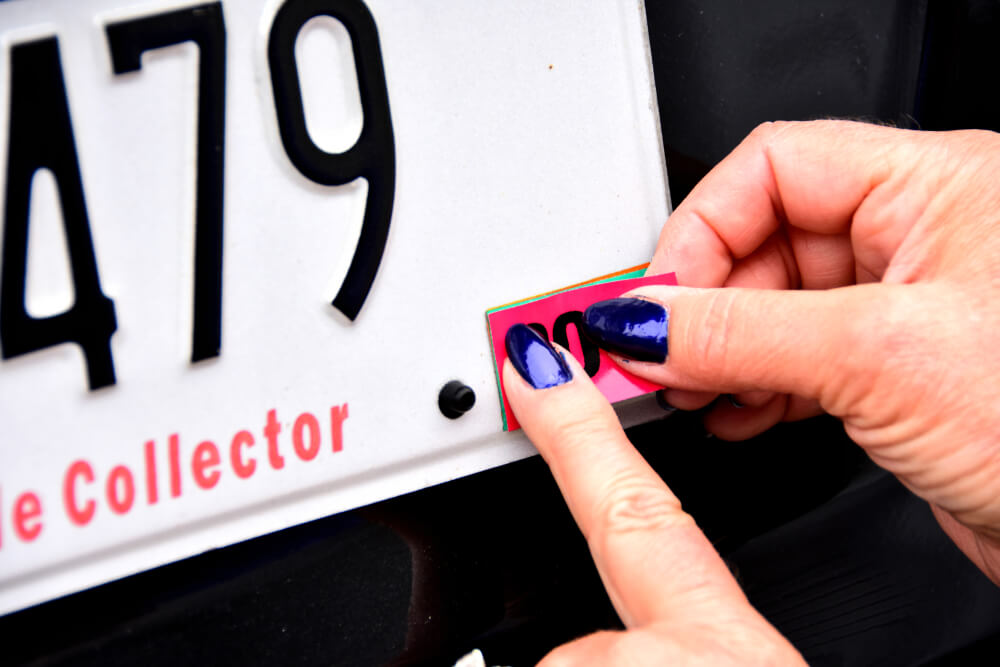
When you move to a new state, you have to deal with all the logistics, including changing your address and finding the best restaurants near your new home. When it comes to your car insurance, you need to first make sure your current insurer can legally operate in your new state. If you need to find a new carrier, it’s always best to do that early, so you have a few days of overlapping coverage – just to be on the safe side.
Another important detail is updating your car registration. Wondering how to register your vehicle after a move? Each state has its own system, so you’ll need to register your vehicle after moving. But how long do you have before your old registration is no longer valid in your new home?
While registering your car as soon as possible is always a good idea, some states give you more time than others. Keeping track of the deadlines can help you successfully manage your move and avoid any penalties for invalid licensing.
Understanding the Registration Deadline
Because each state handles vehicle registration differently, deadlines can vary. There’s usually a grace period with your local tax office or Department of Motor Vehicles (DMV) to update your information, such as registering your car and getting a new license.
This can give you the breathing room to handle all the administrative details of permanently moving to a new address. However, some states do require you to register your vehicle right away. Be sure to look up the rules in your new state before you move, then add the deadline to your moving checklist for a hassle-free transition to your new home.
Only three states don’t have a grace period for car licensing after moving: Massachusetts, Michigan, and New Mexico. That means you must register your car immediately after officially updating your address.
Other states have deadlines that range from 10 days to 90 days. Here’s a basic breakdown of the different registration periods:
| State | Registration Deadline |
| Alaska, Arizona, Florida | 10 days |
| Kentucky | 15 days |
| California, Pennsylvania | 20 days |
| Alabama, Arkansas, Hawaii, Illinois, Iowa, Louisiana, Maine, Mississippi, Missouri, Nebraska, Nevada, New York, Ohio, Oklahoma, Oregon, Rhode Island, Tennessee, Texas, Virginia, Washington, West Virginia, Wyoming | 30 days |
| South Carolina | 45 days |
| Delaware, Indiana, Kansas, Maryland, Minnesota, Montana, New Hampshire, New Jersey, North Carolina, North Dakota, Utah, Vermont, Washington D.C., Wisconsin | 60 days |
| Colorado, Connecticut, Idaho, South Dakota | 90 days |
Prioritize your car registration based on the timeline in your new area. If you’re moving to Michigan, for example, registering your car should be your first priority once you establish residence. If you’re moving to a state with a 90-day grace period, such as Colorado, you’ll have more breathing room. However, it’s important to ensure you don’t wait so long that you forget to register your car and miss the deadline. Update your licensing promptly to avoid any future issues.
The Consequences of Missing the Registration Deadline
It’s against the law to drive a vehicle that doesn’t have an up-to-date registration. Even if you registered your car in your previous home state, you still need to register with your new state. Otherwise, you can get a ticket for driving an unregistered car.
Driving without a valid registration is usually an administrative infraction that doesn’t go on your criminal record. However, it can be considered a misdemeanor in some states. Common consequences for driving without up-to-date licensing include:
- Paying fines and fees.
- Having your vehicle towed or immobilized with a boot.
- Getting points on your license.
- Being unable to register other vehicles or renew your driver’s license.
If you get pulled over in your new state after the deadline, you may get a fine for not registering your vehicle after a move. However, many states consider driving an unregistered vehicle to be a correctable violation, also known as a “fix-it ticket.” This means that if you register your vehicle within a certain time frame and submit proof to the court, you can get the ticket completely dismissed.

Depending on where you live, you’ll need to mail in proof of your updated registration or drop it off in person. You may have to pay a small administrative fee, but the fees for fix-it tickets are usually much cheaper than paying the fine outright. For example, you might only have to pay $10 or $20 instead of $200 or more.
If you wait too long to correct the issue, you will have to pay the full fine and may have to deal with points on your license. And if you don’t pay for your expired registration ticket, the consequences will increase. You could have your license suspended or even be arrested.
Preparing for Your Vehicle Registration
The vehicle licensing process can vary slightly from place to place, but most states have the same standard steps. Registering your vehicle after a move can help you keep your car street-legal without any delays. The following is a basic guide to registering your vehicle after moving.
1. Make the Official Move
In most areas, you’ll need to take care of your car inspection and registration in person. After you get settled in your new state and establish a new address, you can start the process of registering your vehicle.
2. Update Your Insurance
You need valid insurance to register your car in most states. Insurance rates and policies can vary from state to state, so contact your provider to discuss your move. Moving may be the optimal time to switch auto insurance to a new carrier or simply update your plan with your existing provider to ensure you’re fully covered.
3. Get a Vehicle Inspection
Each state can set its own rules for which vehicles can pass inspection. For example, some states have strict emissions rules, while others don’t have any emissions requirements. You’ll need to get an official inspection conducted at an authorized inspection station for your state. If the inspector finds any issues, get them fixed right away so you can get a passing inspection report.
4. Prepare Your Documents
Look up which documents your state requires to process a vehicle registration. You’ll likely need your inspection report, proof of insurance, your driver’s license, and proof of ownership, such as the vehicle’s title or loan paperwork.
5. Find a Tax Assessor
Find the address for your local tax office or a verified tax assessor-collector. Once you arrive, you can submit your paperwork and pay the licensing fee. You’ll get proof of registration or a sticker to place on your windshield.
The Role of Auto Insurance in Vehicle Registration
A majority of U.S. states require you to have insurance to register your car. This helps ensure that all drivers on the road meet minimum liability insurance requirements. These auto insurance minimums can vary by state, so your policy in one state might not be enough after you move. It’s important to learn the state-required minimum car insurance in your new state before or soon after you relocate.
If you’re planning to move or have recently relocated to a new state, be proactive about contacting your insurance and researching new policies. If possible, set up your new plan to start right when you move to your new state to avoid any gaps in coverage.
If you’re stopped and found to be driving without insurance and without a valid registration, fines and fees can quickly stack up. You may even get your license revoked after multiple instances of driving without insurance. Paying close attention to insurance and licensing deadlines is the best way to avoid an expensive ticket and keep your record clean.
Transitioning Smoothly with Affordable Auto Coverage
Moving to a new state is a great time to assess your insurance and explore new providers. At Freeway Insurance, we make it easy to find a policy that meets your new state’s requirements since we operate in all 50 states. Once you set up a policy with Freeway, you’ll be ready to register your car with ease. Visit a Freeway Insurance office in your city, get a free quote online, or call 800-777-5620 to see how Freeway can help you conquer your move today.



